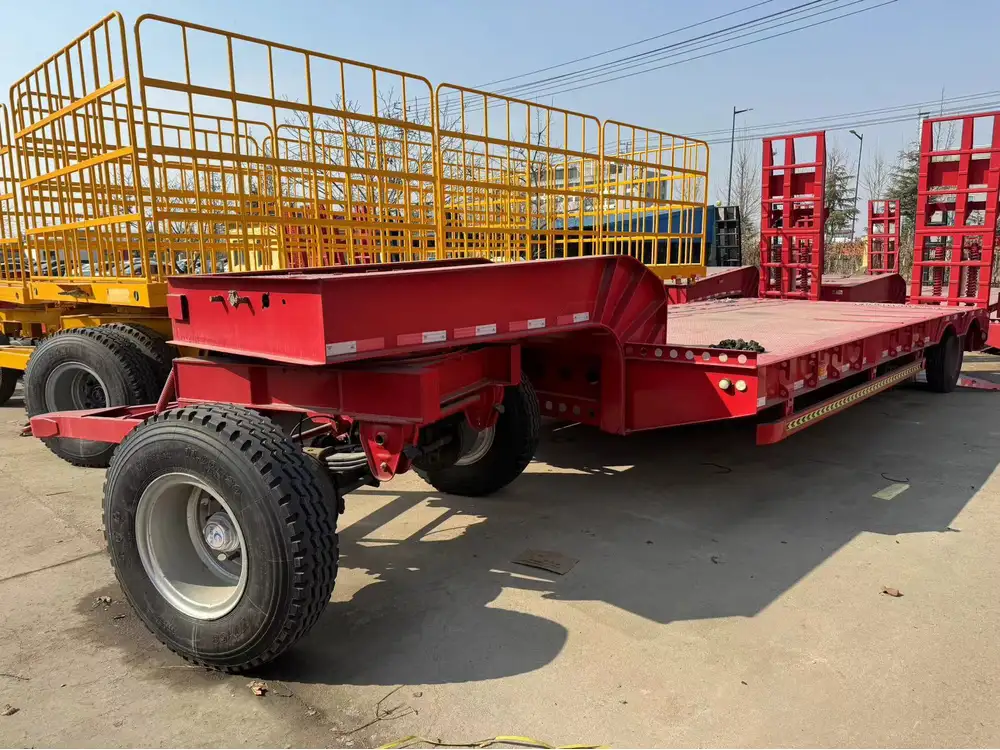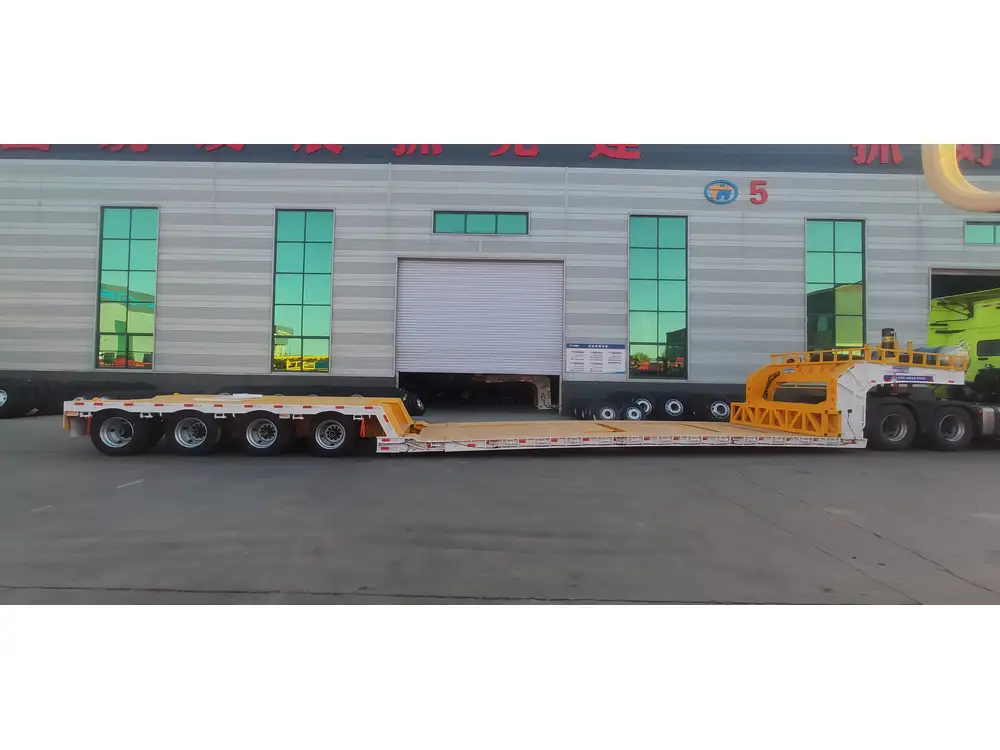Dump trailers are invaluable assets for various industries, including construction, waste management, and landscaping. Understanding what hydraulic fluid to use in your dump trailer is essential for optimal performance and longevity of your equipment. This comprehensive guide will explore everything you need to know about hydraulic fluids for dump trailers, breaking down the critical components, types of hydraulic fluids available, and maintenance tips to ensure that your dump trailer operates efficiently.
What Is Hydraulic Fluid and Why Is It Important?
Hydraulic fluid is a specialized medium used to transfer power within hydraulic systems. It serves multiple functions, including:
- Power Transmission: Hydraulic fluid transmits force from the hydraulic pump to the hydraulic cylinders, allowing the trailer to lift and lower loads.
- Lubrication: It lubricates moving parts within the hydraulic system, reducing friction and wear.
- Heat Transfer: Hydraulic fluid helps dissipate heat generated during operation, maintaining the system’s temperature within optimal limits.
- Corrosion Resistance: Good hydraulic fluids contain additives that protect against corrosion and rust, extending the lifespan of components.
Choosing the right hydraulic fluid is crucial, as improper fluid can lead to equipment failure, increased maintenance costs, and safety hazards.
Types of Hydraulic Fluids
Hydraulic fluids come in several different types, each designed for specific applications and environments. The following section outlines the key types and their attributes:
| Type of Hydraulic Fluid | Description | Ideal Use Cases |
|---|---|---|
| Mineral Oil-Based Fluids | Most common type; derived from refining crude oil and often includes additives for improved performance. | Workshop equipment, construction machinery. |
| Water-Based Fluids | Composed of water mixed with oil; generally less flammable but may offer lower lubrication properties. | Low-pressure systems, environments requiring fire safety. |
| Biodegradable Fluids | Made from renewable resources like vegetable oils; environmentally friendly and break down naturally. | Environmental regulations, forestry, and agricultural applications. |
| Synthetic Fluids | Chemically engineered fluids that provide excellent performance at extreme temperatures and pressures. | High-performance applications, severe operating conditions. |
| ATF (Automatic Transmission Fluid) | Often used in automotive fluids; provides good lubrication and protection. | Vehicles with hydraulic systems that remain under automotive categories. |

Selecting the Right Hydraulic Fluid for Your Dump Trailer
Choosing the correct hydraulic fluid for your dump trailer involves considering various factors:
- Manufacturer Recommendations: Always refer to your dump trailer’s user manual for recommendations on hydraulic fluid specifications. Follow the manufacturer’s guidelines to avoid warranty issues.
- Operating Environment: Temperatures and operating conditions can drastically affect fluid performance. If you operate in extreme temperatures, synthetic fluids may be a superior choice due to their thermal stability.
- Load Capacity: Consider the loads your dump trailer will handle. A fluid with higher viscosity may be necessary for heavy loads to maintain proper fluid film thickness.
- Regulatory Requirements: If you’re in an environmentally sensitive area, biodegradable fluids may be a legal requirement or prudent choice.
Hydraulic Fluid Viscosity: What You Need to Know
Viscosity is a critical parameter that affects hydraulic fluid performance. It determines how easily the fluid flows and how well it lubricates moving parts. Hydraulic fluids are labeled with viscosity grades based on the Society of Automotive Engineers (SAE) standards.
- Low Viscosity Fluids (e.g., ISO 32): Flow easily at low temperatures, suitable for cold climates.
- Medium Viscosity Fluids (e.g., ISO 46): A good balance for moderate climates and general use.
- High Viscosity Fluids (e.g., ISO 68): Ideal for high-load applications and heat resistance.
Viscosity Selection Tips
- Consult the Manual: Always check specifications in the user manual for viscosity recommendations.
- Consider Seasonality: Change viscometric ratings seasonally if you’re operating in regions with extreme temperature variations.
- Track Performance: Monitor your dump trailer’s performance and adjust the viscosity rating as necessary during routine maintenance checks.

Common Hydraulic Fluid Issues and Troubleshooting
Hydraulic systems in dump trailers can experience various issues related to fluid quality, contamination, and performance. Some common problems include:
1. Contamination
Contaminated hydraulic fluid can lead to reduced performance and equipment failure. Common sources of contamination include dirt, water, or chemical residues.
Prevention Tips:
- Use high-quality filters to keep contaminants out.
- Ensure all connections are sealed to mitigate air and moisture ingress.
- Regularly check fluid color and clarity; murky or cloudy fluids require immediate attention.
2. Overheating
Excessive hydraulic temperatures can degrade fluid quality, leading to poor performance and possible damage to hydraulic components.
Solutions:
- Regularly inspect the hydraulic system for leaks that could introduce air.
- Use larger reservoirs or coolers to dissipate heat more effectively.
- Monitor external temperatures; consider thermally stable synthetic fluids for harsh environments.

3. Fluid Foaming
Foaming occurs when hydraulic fluid mixes with air, leading to aeration and loss of power. Symptoms include erratic cylinder movement and increased noise.
Mitigation:
- Ensure that the fluid is at the proper level.
- Select hydraulic fluids with anti-foam additives.
- Check for leaks that allow air to enter the hydraulic lines.
Maintenance Tips for Dump Trailer Hydraulic Systems
Maintaining the hydraulic system of your dump trailer goes beyond just picking the right fluid. Here are some best practices to consider:
Regular Fluid Checks and Changes
- Visual Inspection: Conduct routine checks of the hydraulic fluid level and quality. Dark, murky fluid or floaties indicates contamination.
- Fluid Replacement: Follow the manufacturer’s recommended intervals for fluid changes, typically every 2,000 to 4,000 operational hours.

Filter Maintenance
- Inspect Filters: Check and replace hydraulic filters according to the manufacturer’s guidelines to prevent fluid contamination.
- Use High-Quality Filters: Choose filters designed for your specific hydraulic fluid type to ensure effective filtration.
System Inspection
- Check Hose Connections: Regularly inspect hoses for cracks or wear; replace any damaged components immediately.
- Monitor Cylinder Movement: Ensure that all moving components of the hydraulic system operate smoothly without jerks or delays.
Conclusion: Empower Your Dump Trailer with the Right Hydraulic Fluid
Selecting the right hydraulic fluid for your dump trailer is a fundamental aspect of maintaining its performance, efficiency, and longevity. By understanding the types of hydraulic fluids available, their specific properties, and best maintenance practices, you can significantly enhance the effectiveness of your dump trailer while minimizing costly repairs.
This extensive guide provides a solid foundation to empower your decision-making process regarding hydraulic fluids. With the right knowledge and deliberate choices, you are equipped to ensure that your dump trailer continues to be a reliable partner in your operations.

Additional Resources
For further information and guidance, consider the following resources:
- Manufacturer-specific manuals for fluid specifications
- Online forums and communities for user experiences
- Local hydraulic supply stores for product recommendations
With informed choices and proactive maintenance, you can keep your dump trailer running at peak performance for years to come.



